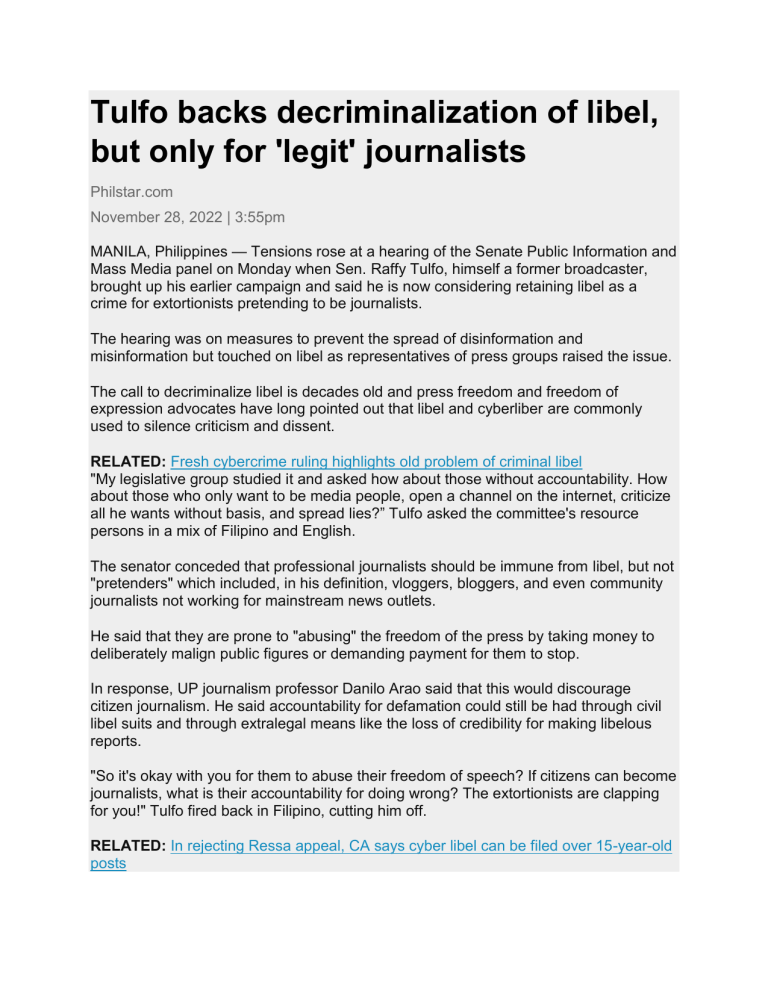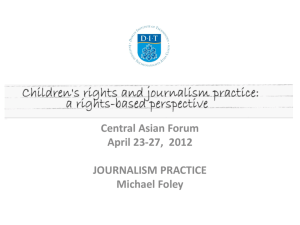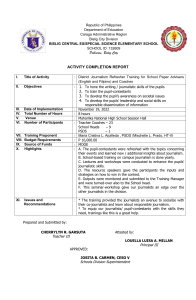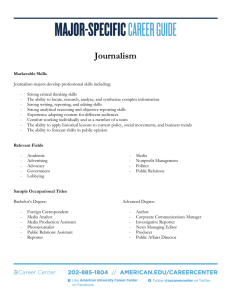Tulfo on Libel: Decriminalization for 'Legit' Journalists Only
advertisement

Tulfo backs decriminalization of libel, but only for 'legit' journalists Philstar.com November 28, 2022 | 3:55pm MANILA, Philippines — Tensions rose at a hearing of the Senate Public Information and Mass Media panel on Monday when Sen. Raffy Tulfo, himself a former broadcaster, brought up his earlier campaign and said he is now considering retaining libel as a crime for extortionists pretending to be journalists. The hearing was on measures to prevent the spread of disinformation and misinformation but touched on libel as representatives of press groups raised the issue. The call to decriminalize libel is decades old and press freedom and freedom of expression advocates have long pointed out that libel and cyberliber are commonly used to silence criticism and dissent. RELATED: Fresh cybercrime ruling highlights old problem of criminal libel "My legislative group studied it and asked how about those without accountability. How about those who only want to be media people, open a channel on the internet, criticize all he wants without basis, and spread lies?” Tulfo asked the committee's resource persons in a mix of Filipino and English. The senator conceded that professional journalists should be immune from libel, but not "pretenders" which included, in his definition, vloggers, bloggers, and even community journalists not working for mainstream news outlets. He said that they are prone to "abusing" the freedom of the press by taking money to deliberately malign public figures or demanding payment for them to stop. In response, UP journalism professor Danilo Arao said that this would discourage citizen journalism. He said accountability for defamation could still be had through civil libel suits and through extralegal means like the loss of credibility for making libelous reports. "So it's okay with you for them to abuse their freedom of speech? If citizens can become journalists, what is their accountability for doing wrong? The extortionists are clapping for you!" Tulfo fired back in Filipino, cutting him off. RELATED: In rejecting Ressa appeal, CA says cyber libel can be filed over 15-year-old posts VERA Files founder Ellen Tordesillas challenged Tulfo’s definition of "fake" journalists, pointing to the strict set of standards that genuine journalists must always adhere to. "People who just post immediately, I don’t consider them as journalists. Because blogging and posting on social media does not make one a journalist," she said in mixed Filipino and English. "If you say you will provide protection for journalists, that does not include all those who make posts; that’s why I am saying it is not true that just because you post or publish something on social media, you are a journalist already. I do not agree with that, because to be called a journalist, one should adhere to the core values of journalism." There is no licensure exam for journalists and press groups have historically opposed proposals for them over concerns that this could lead to censorship and to government control of media. 'Fight fake news with factual information' In the 18th Congress, a panel led by then-Sen. Francis "Kiko" Pangilinan approved Committee Report No. 648 recommending that social media platforms be held accountable for the proliferation of fake news. Sen. Sherwin Gatchalian said Monday that the panel could also look into legislation that would focus on the platforms. Tulfo said in the same hearing that providing free internet in more places around the country could also alleviate the problem of misinformation and disinformation. "Fake news targets the poor because they can't afford to buy load. All they can afford is free internet or free data. They don't have access to other social media platforms, they don't have a way to fact-check. What they see in the free data access on the internet, they immediately believe it," he said in Filipino. According to a Pulse Asia survey released in October, 86% of respondents acknowledge that the spread of fake news is a problem in the Philippines. But media groups and advocates both here and abroad have also long pushed for the decriminalization of cyberlibel, saying it stands in the way of genuine public interest reporting and is incompatible with the constitutional right to freedom of expression. In its position paper sent to the committee, the National Union of Journalists of the Philippines recommended "strengthening Media and Information Literacy programs as well as the development of a communications policy for responding to critical or unflattering news reports through clarificatory statements and responses that do not resort to labeling these reports as 'fake,' 'manipulated' or 'fabricated.'" It also urged caution in addressing the problem of disinformation through legislation, saying laws could be used for censorship. "As we meet today, two of our colleagues — Darcie De Galicia and Noel Alamar — are facing 941 counts of cyber libel filed against them by the governor of Quezon province," the journalists' group said to highlight how law like libel can be used to intimidate and retaliate against journalists. "Pandemic prohibitions on 'fake news' have also led to cases that illustrate the danger of even well-meaning legislation," the group said, recounting the case of Cebu artist Bambi Beltran who was arrested in 2020 over a sarcastic Facebook post. Reporters Without Borders, which compiles the annual World Press Freedom Index, noted in 2021 that countries in Southeast Asia "used the pandemic to reinforce obstacles to the free flow of information." It included the Philippines among the nations it said "adopted extremely draconian laws or decrees in the spring of 2020 criminalizing any criticism of the government’s actions and, in some cases, making the publication or broadcasting of 'false' information punishable by several years in prison." — Franco Luna https://www.philstar.com/headlines/2022/11/28/2227054/tulfo-backs-decriminalization-libel-onlylegit-journalists Activity 1 (Day 1) In paragraph form 1. Think about how everyday citizens could contribute to media and journalism a few years ago and compare that to their ability to contribute now. Ask your parents about their ability as citizens to contribute to news when they were younger. Consider the differences between then and now. Think about how as technology has advanced, citizen’s ability to contribute has increased accordingly. With all the technological advances being made today, do you think citizen journalism will become a bigger part of everyday life and news? Write one paragraph each on how the ability for citizens to contribute to journalism has changed over the years (make sure to note any correlation you found between advances in technology and increases in the ability of citizens to contribute), and how you think technology will allow citizens' role to continue to grow. Day 2 2. In the case study above, list 3 responsibilities of a journalist. Write a concrete examples from the news article. Day 3 1. Both the media and news consumers have expressed concern over the fact that there is no set code of standards for how professional journalists should use citizen journalism contributions in their own work. Brainstorm a set of standards for professional journalists using citizen journalism. Make sure to address all the issues raised in the following questions: Should the same set of standards be used worldwide, regardless of the audience of the content, or should the standards vary depending on if the audience of the professional journalist is local, regional, national, or global? Should the set of standards vary among TV news, online news, print news, etc., or should all types of news have the same standards? Under what circumstances is it acceptable for professional journalists to use citizen journalism contributions in their work? Can it be used as a supplement when professional journalists are short staffed or is it only acceptable for situations such as a breaking news crisis? How much of a professional journalist's work can consist of citizen journalism content before it's too much? When professional journalists use citizen journalism, how accountable are the professional journalists for the content? Does the accountability shift when the citizen journalist knowingly presents false information as verified truth? What does credibility mean for professional journalists? Is it different for what it means for a citizen journalist? 2. After reading the case study, it should be evident that citizen journalism holds power, but also must be used responsibly. Some say guidelines would help contributions by citizen journalists to be as credible, and thus as useful, as possible. Brainstorm some guidelines for citizen journalism. Make sure to cover the following issues: How accountable should citizen journalists be for their work? What does credibility mean? Does it mean the something different for citizen journalism as opposed to professional journalism? How can we hold citizen journalists accountable? (You might consider ideas such as terms and rules for websites or electronic signatures.) How can the public hold citizen journalists accountable across different venues and mediums? Should citizen journalists who make especially meaningful contributions ever be paid? If so, by whom? Should citizen journalism be used to supplement gaps in coverage from professional journalists?



